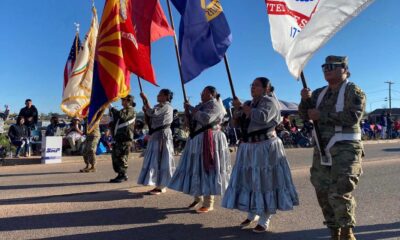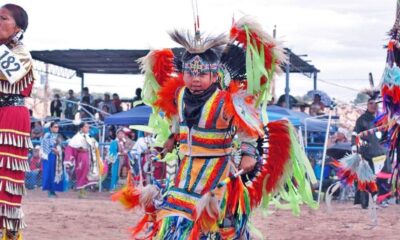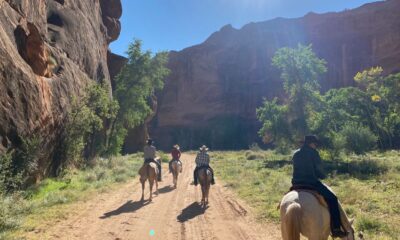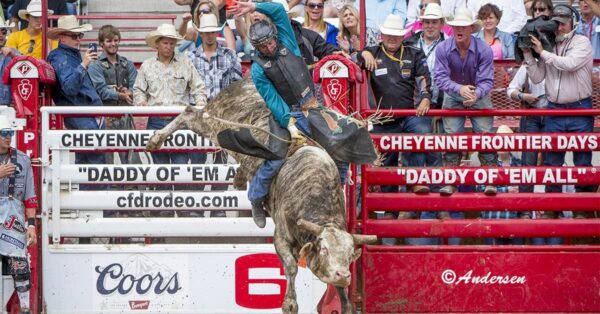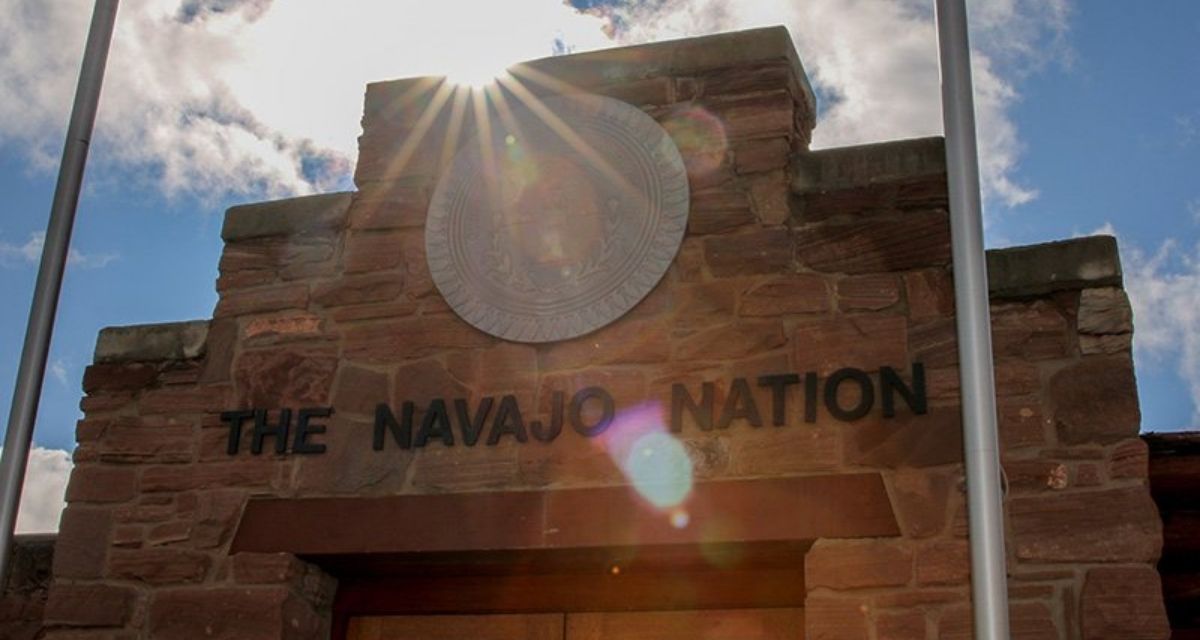
An Inside Look at the Navajo Nation Government
As we continue our deep dive into everything Navajo Nation, we wanted to create a special feature article on the Navajo Nation Government. There’s something to be said for a nation that operates solely within another nation. They have one of the most complex forms of government that the world has seen within an American tribe. But first, let’s read up on some history!
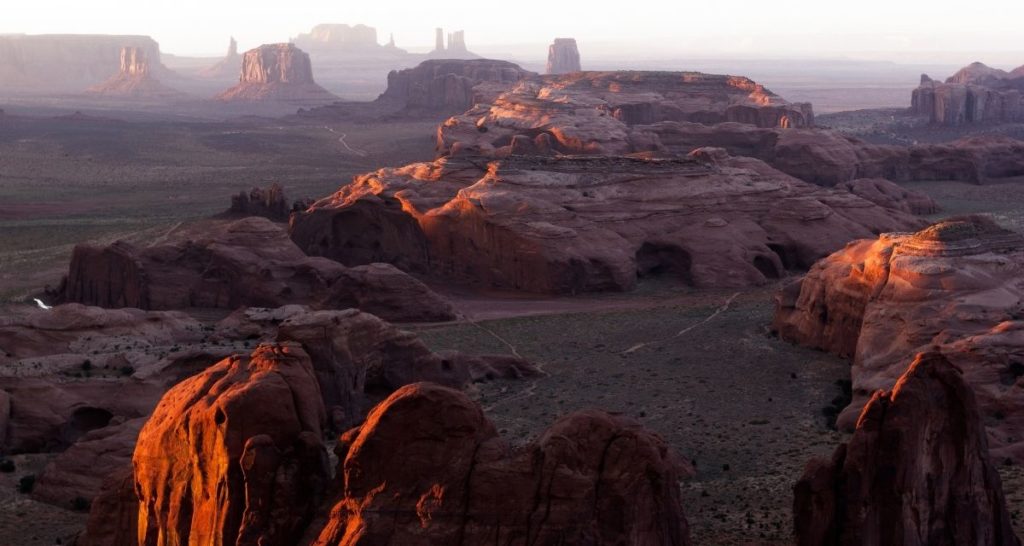
Navajo Nation Government History
In the 1920s, the discovery of oil on Navajoland presented the need for a more complex form of government when the Navajo Nation became a wealthy nation in a world of its own. It started when the first Navajo Tribal Council was established in 1923. In the early 1930s, Window Rock, AZ was chosen as the capital of the Navajo Nation by John Collier, the Commissioner of Indian Affairs at the time. Then in 1936, the US Government issued the “Rules of the Navajo Tribal Council,” which formed the foundation for the Navajo Nation’s government, which is the same structure that remains in place today.
Although, it was not until 1938 when the first election took place. It was a few short years later in 1984, that the Navajo Nation Council established a Permanent Trust Fund, in which the tribe contributes 12% of all revenues collected each year. In 1989, the Title 2 Amendment was passed, which established their three-branch system of government, comparable to the major democracies of the world, Executive Branch, Judicial Branch, and the Legislative Branch. As it stands, the Navajo government has evolved into one of the largest and most sophisticated existence of the American Indian government.
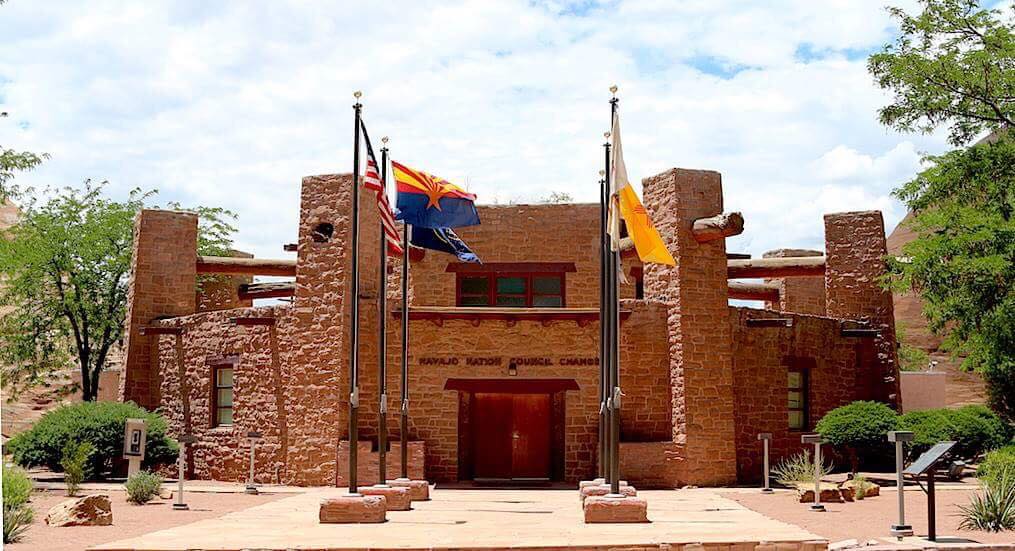
Navajo Nation Government Structure
Much like the structure we see in the US, the Executive Branch is made up of the President and the Vice-President. They are both elected by the popular vote of the Navajo people for four years, which equals a single term. The Judicial branch is made up of the Chief Justice who is appointed by the President but must be approved by the Navajo Nation Council. The Navajo Nation Council makes up the Legislative Branch of the Navajo Nation. On the council, there are 24 members called Council Delegates. The members are elected for a four year term by the registered voters of the 110 Chapters. Chapters are essentially subdivisions of agencies that function similarly to counties in the US.
Navajo Nation Agencies
The Navajo Nation is divided into five agencies, with the seat of government located at the Navajo Governmental Campus at Window Rock/Tségháhoodzání. These agencies are similar to county entities and reflect the five Bureau of Indian Affairs (BIA) agencies created in the early years of the Navajo Nation. The five agencies within the Navajo Nation are the Chinle Agency at Chinle, Arizona; Eastern Navajo Agency at Crownpoint, New Mexico; Western Navajo Agency at Tuba City, Arizona; Fort Defiance Agency at Fort Defiance, Arizona; and Northern Agency at Shiprock, New Mexico. The BIA agencies provide various technical services under the direction of the BIA’s Navajo Area Office at Gallup, New Mexico. Agencies are further divided into chapters, similar to municipalities, as the smallest political unit.
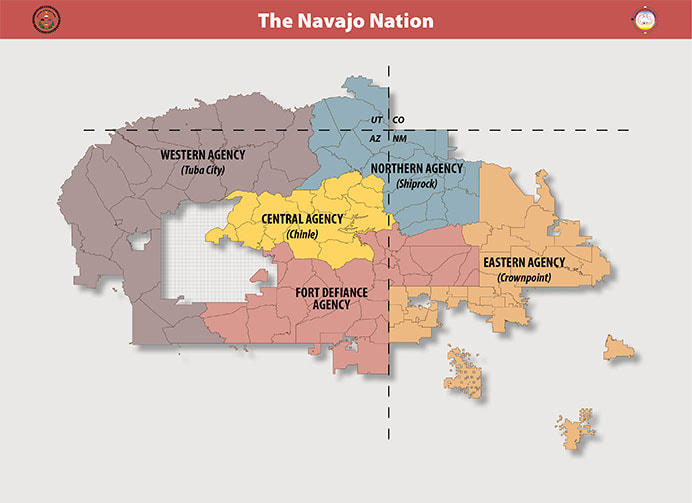
Navajo Nation Chapters
Local governance occurs through entities called “Chapters,” which are geographically subdivided populations of tribal members. Each of the Navajo Nation’s 110 chapters is centered near a population center.
The Local Governance Act enables tribal members to vote on local economic development issues, such as the granting of home and business site leases within the community. Though chapters have significant power in the community with planning and development, the ultimate authority legally remains in the hands of the Navajo Nation Council.
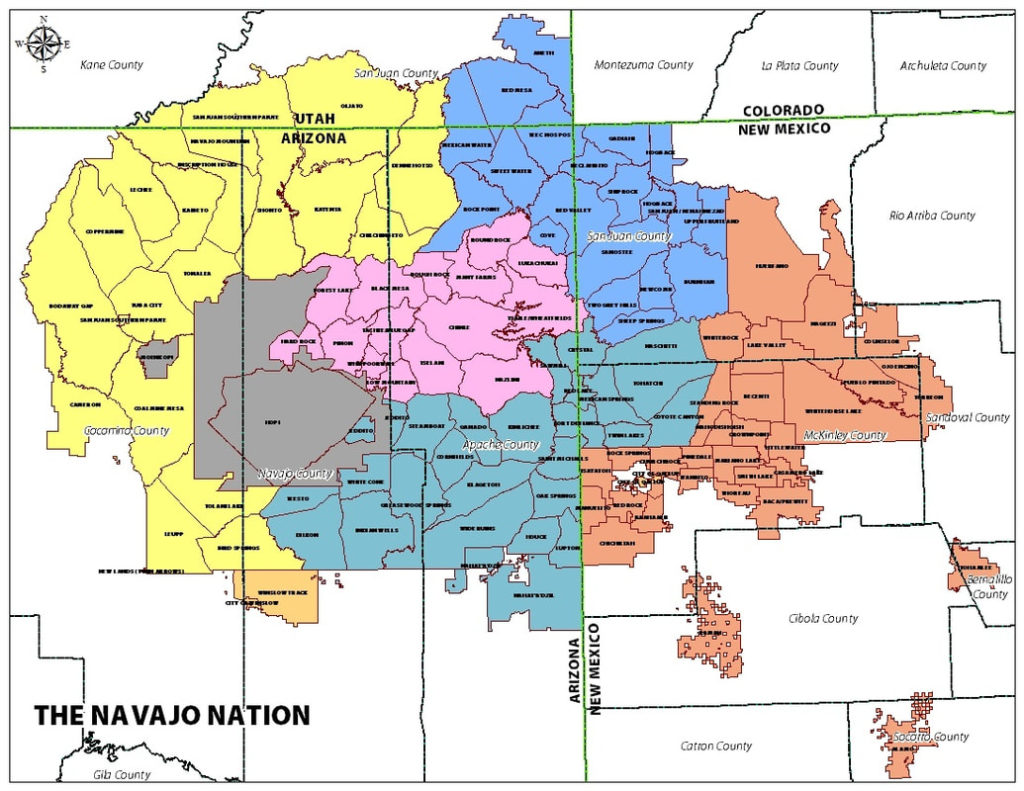
Navajo Nation Government Divisions
Division of Community Development
Division of Economic Development
Mission: “We’re here to help you build a successful business in the Navajo Nation. We are the Division of Economic Development (DED), a department within the executive arm of the Navajo Nation. Our sole purpose is to create an environment that is conducive to promoting economic development through our business services in the Commercial, Tourism, Industrial, Small Business, and other sectors of the Navajo Nation economy, thereby creating jobs and business opportunities for Navajos and non-Navajos alike.” – Division Director, Division of Economic Development
Division of Public Safety
Mission: “Protect the safety, health, and property of the Navajo Nation in order to provide an environment commensurate with an acceptable quality of life. Implicit in this mission statement is providing professional services that are innovative and consistent with current technology.”
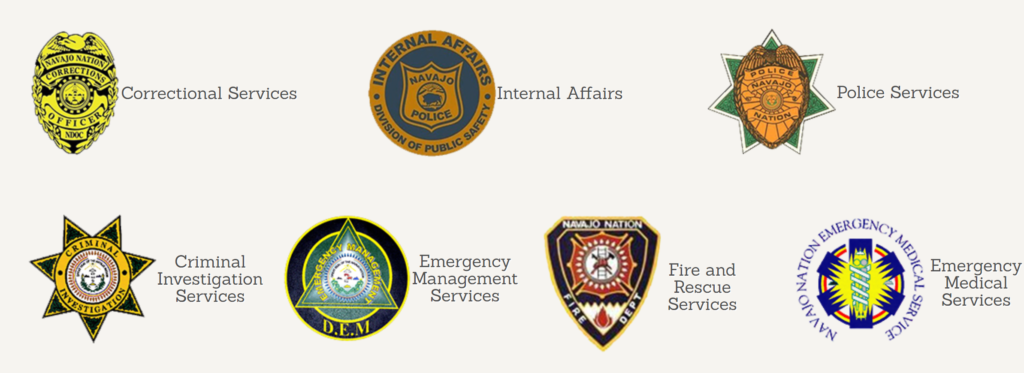
Division of General Services
Mission: “The Mission of Division of General Services (DGS) is to provide optimal support services to the Navajo Government. This is accomplished by continuing and maintaining Navajo Nation Telecommunications Utilities, Department of Information Technology, Employee Housing Program, Facilities Maintenance Department, Insurance Services Department, Records Management Department, Air Transportation Department, Navajo Transit System, and Fleet Management Department.
Division of Health
About: “The Navajo Department of Health is committed to the health and well-being of the Navajo People. The Department has 14 separate programs funded by various agencies. With headquarters in Window Rock, the Navajo Department of Health serves approximately 300,000 members of the Navajo Nation, the largest tribe in the United States. Covering an area of over 27,000 square miles, the Department of Health delivers a variety of health services in the areas of nutrition, aging, substance abuse, outreach, and emergency medical services, working in close partnership with state, federal, and local partners. Learn more by clicking on any of the Department’s programs to the right. Late-breaking information on health topics is given below, and updated regularly.”
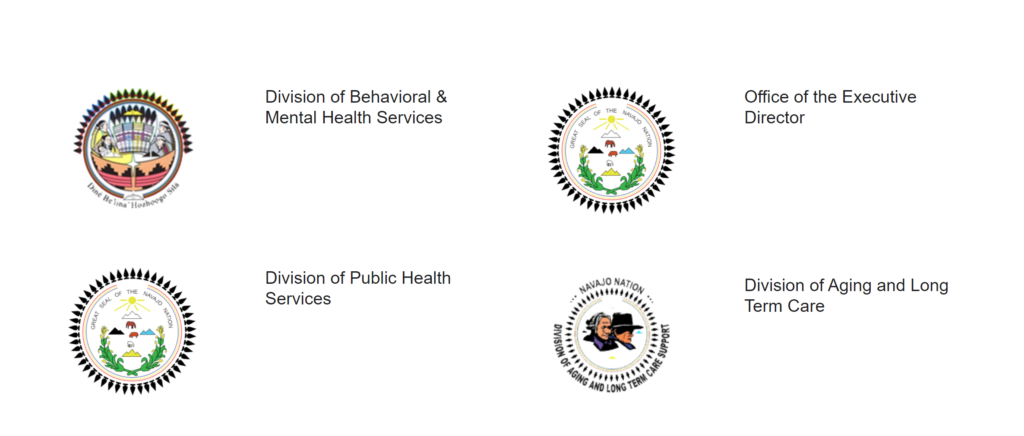
Division of Natural Resources
Mission: “To manage, protect, conserve and preserve the Navajo Nation’s natural and cultural resources for the benefit of the Navajo people. In support of this, we will: Protect the sovereignty of the Navajo Nation consistent with cultural values; Foster partnerships with Federal, State, Tribal and local Navajo communities and other interested parties; Provide accountable leadership in optimizing effective use of available resources and balancing this with Navajo cultural values; Conduct our business in an ethical manner being aware that the decisions we make are consistent and based on facts; Treat our customers and associates honestly and with respect; Use standards of performance to meet organizational needs; and Enhance job satisfaction and growth needs of our employees.”
Division of Human Resources
Mission: “To maximize the integrity of the Navajo Nation Government with our Customers and Constituents by providing technological solutions and services, and setting standards of world-class performance.”
Division of Transportation
About: The Navajo Division of Transportation (NDOT) is a division under the Executive Branch of the Navajo Nation government. Its mission is to develop and maintain roads, bridges, and airports in the Navajo Nation. Additionally, it is composed of the Executive office and five other departments: Planning, Project Management, Roads Maintenance, Highway Safety, and Airports Management.

Division of Finance
Department of Dine Education
Mission: “It is the educational mission of the Navajo Nation to promote and foster lifelong learning for the Navajo People and to protect the cultural integrity and sovereignty of the Navajo Nation.”
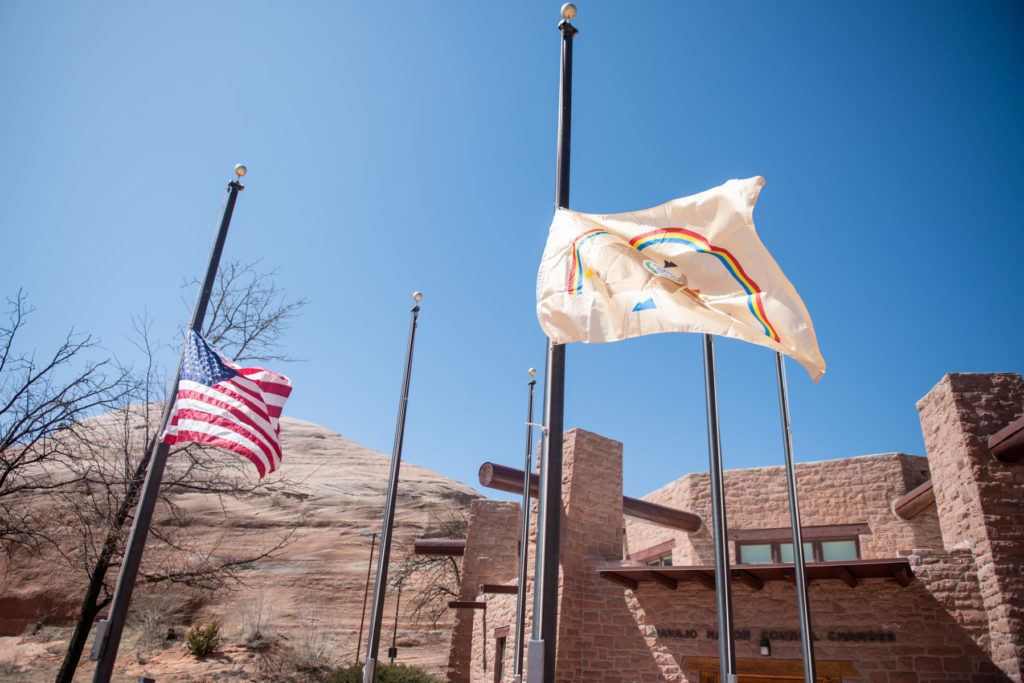
All in all, there is SO much more that we could dive into, for now, we are going to stick to the high-level understanding of the Navajo Nation Government System. Make sure to stay tuned for more in this series and even some possible interviews! Read more about the Navajo Nation here.
A Note From the Author
We are currently seeking original stories and interview applicants for our Navajo Nation Article Series. If interested please email krysta@clngo.com for more information.
CLN Community & Event Sponsor

